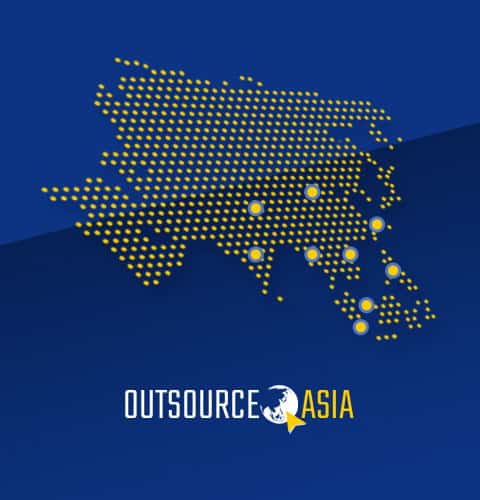
The Pros and Cons of Offshore Outsourcing in 2024
In the constantly developing landscape of global business, strategic practices like offshore outsourcing play a pivotal role in shaping the way companies operate and grow. As we navigate the complexities of 2024, it’s essential to examine the current landscape of Offshore Outsourcing, considering its advantages and disadvantages, and the industries that are leveraging this business model.
I. Definition of Offshore Outsourcing
Offshore Outsourcing is a strategic business practice that involves contracting out certain business processes to external vendors located in different countries. This approach allows companies to access a global talent pool, reduce operational costs, and focus on core competencies. As a widely adopted business model, Offshore Outsourcing has become integral to the operations of various industries across the globe.
II. Top Industries Utilizing Offshore Outsourcing in 2024
A. Information Technology (IT) and Software Development: IT outsourcing remains a dominant force, with businesses seeking specialized skills and cost-effective solutions for software development, maintenance, and support.
B. Customer Support and Call Centers: Industries such as telecommunications, e-commerce, and finance continue to outsource customer support services to enhance efficiency and provide 24/7 assistance.
C. Manufacturing and Supply Chain: Manufacturing companies leverage Offshore Outsourcing to optimize supply chain processes, reduce production costs, and enhance overall operational efficiency.
D. Finance and Accounting: Outsourcing financial and accounting services allows businesses to focus on strategic financial planning while benefiting from the expertise of external professionals.
III. Pros of Offshore Outsourcing
A. Cost Savings
Offshore Outsourcing is often associated with significant cost savings. Businesses can tap into regions where labor costs are lower than in their home countries. This allows for more efficient allocation of resources, reducing overall operational expenses. Additionally, businesses can profit from favorable exchange rates, maximizing the value of their investments.
B. Access to Global Talent Pool
Offshore Outsourcing opens doors to a vast and diverse talent pool around the world. Companies can access specialized skills and expertise that may not be readily available in their domestic market. This diversity in talent enhances innovation and problem-solving capabilities, contributing to the overall competitiveness of the business.
C. Focus on Core Competencies
By outsourcing non-core functions, businesses can concentrate on their core competencies and strategic objectives. This shift in focus enhances efficiency, agility, and the ability to respond swiftly to market changes. It also allows organizations to streamline their internal processes, fostering innovation and growth.
D. 24/7 Operations
With established teams working across different time zones, Offshore Outsourcing facilitates round-the-clock operations. This can lead to faster project completion and enhanced customer support, contributing to increased customer satisfaction.
E. Flexibility and Scalability
The flexibility provided by Offshore Outsourcing allows companies to scale their operations based on demand. During periods of high workload, additional resources can be easily deployed, and during slower periods, teams can be scaled down. This adaptability enables businesses to respond effectively to changing market conditions and customer requirements.
F. Access to Advanced Technologies
Outsourcing to regions with advanced technological capabilities allows businesses to leverage the latest innovations without substantial upfront investments. This is particularly relevant in industries such as information technology, where staying technologically competitive is necessary.
G. Risk Mitigation
Offshore Outsourcing can act as a risk mitigation strategy by diversifying the geographic locations of operations. This helps companies reduce dependency on a single market and navigate geopolitical or economic uncertainties. Diversification also provides a buffer against regional disruptions, promoting business continuity.
H. Speed to Market
With the ability to distribute work across different time zones, Offshore Outsourcing accelerates project timelines. This faster speed to market can be a key competitive advantage, especially in industries where being first to market with a product or service is critical.
I. Global Market Expansion
Outsourcing can aid companies in expanding their global footprint. By establishing a presence in different regions, businesses can better understand local markets, regulations, and consumer preferences. This expansion contributes to increased market share and opportunities for international growth.
The pros of Offshore Outsourcing extend beyond cost savings, encompassing a range of strategic advantages that can enhance a company’s competitiveness and overall performance. Careful consideration of these benefits, along with an understanding of the specific needs and challenges of the business, is important for making informed decisions about Offshore Outsourcing.
IV. Cons of Offshore Outsourcing
A. Communication Challenges
Offshore Outsourcing often involves teams working in different time zones, speaking different languages, and having diverse cultural backgrounds. This can lead to communication challenges, including misunderstandings, delays in information exchange, and difficulties in coordinating tasks. Effective communication becomes a struggle, potentially impacting project coordination and collaboration.
B. Quality Concerns
Maintaining consistent quality across geographically dispersed teams can be tricky. Variations in work standards, cultural interpretations, work ethics, and understanding of project requirements may impact the overall quality of the deliverables. Ensuring that outsourcing partners adhere to the same quality standards as the parent company requires robust communication and oversight mechanisms.
C. Data Security Risks
Offshore Outsourcing involves the transfer of sensitive data across borders, exposing businesses to potential data security risks. Different countries have varying regulations and standards regarding data protection. Guaranteeing compliance with these regulations and implementing robust cybersecurity measures is a must to mitigate the risk of data breaches and unauthorized access.
D. Dependency on External Providers
Relying on external vendors for critical business processes introduces a level of dependency. If the outsourcing partner faces financial instability, operational problems, or geopolitical issues, it can adversely affect the parent company. The potential lack of control over the outsourced functions may leave the business vulnerable to disruptions.
E. Loss of Control
Businesses may experience a loss of control over certain aspects of their operations when outsourcing offshore. This is because Offshore Outsourcing entails relinquishing a certain degree of control over day-to-day operations. The physical separation between the parent company and the outsourcing partner can make it difficult to monitor and manage tasks effectively. This lack of direct oversight can hinder decision-making, responsiveness to changing business conditions, and the ability to quickly address issues as they arise.
While Offshore Outsourcing offers numerous benefits, businesses must carefully consider and manage the associated challenges. Addressing communication issues, implementing robust security measures, and fostering a collaborative culture are vital steps to mitigate the cons of Offshore Outsourcing and ensure a successful partnership.
V. Find Your Offshore Outsourcing Partner with Outsource Asia
In 2024, Offshore Outsourcing remains a double-edged sword, offering both advantages and disadvantages to businesses. Companies must carefully weigh the pros and cons based on their specific needs, industry dynamics, and long-term goals. As the outsourcing landscape continues to evolve, staying informed about industry trends and advancements is crucial.
For businesses seeking reliable outsourcing partners, Outsource Asia provides a platform to connect with trusted service providers. Visit their website at www.outsourceasia.org to explore outsourcing opportunities tailored to your requirements. Make informed decisions, harness the benefits of Offshore Outsourcing, and propel your business to new heights.


